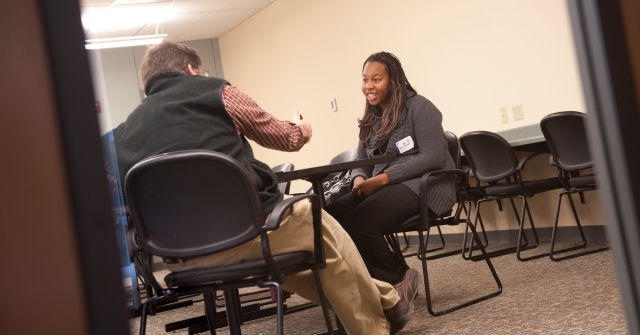Wondering who your academic advisor will be at Westminster, or how your advisor can help you succeed? Here are answers to seven common advising questions.
Question 1: What does my advisor do?
Answer: Your advisor will help you with course selection, dropping or withdrawing from a course if necessary, planning of academic goals and degree planning, selection of majors and minors, discussion of career goals, and keeping track of your progress toward graduation.
Your advisor can also help you with adjustment issues, with questions about how best to succeed in courses, and how to connect with various campus resources, such as the library, career services, internships, counseling and health services, and student services.
Question 2: How do I know who my advisor is?
Answer: Your advisor is the faculty member teaching your Westminster Seminar course.
There are a few exceptions to that. The advisor for WSM 101A is Dr. David Jones, the advisor for WSM 101K and for WSM 102 is Dr. Bob Seelinger, the advisor for WSM 101L is Ms. Mary Majerus, the advisor for WSM 101O is Dr. Kali Wright-Smith.
You will meet your advisor during orientation and have a chance to start planning your educational experience then.
Question 3: Do I have the same advisor during my entire time at Westminster?
Answer: You will have the same advisor until you declare a major. When you declare a major, you will move to a major advisor and be advised by him/her until you graduate.
Question 4: Can I choose a specific advisor, or is the advisor chosen for me?
Answer: When you declare a major, the department chair will assign an advisor for you. Some departments will allow you to choose an advisor with whom you would like to work.
Question 5: Can I change advisors if I am unhappy with my advisor?
Answer: Yes. If that happens, please contact Dr. David Jones, Associate Dean of Faculty.
Question 6: How often do I meet with my advisor?
Answer: You can meet with your advisor as often as you like. Just make an appointment with him/her or visit your advisor during his/her office hours. You should meet with your advisor a minimum of once per semester.
Question 7: What kind of responsibilities do I have as an advisee?
Answer: It’s your responsibility to initiate contact with your advisor, to make appointments with him/her, to be prepared for those appointments, follow through on referrals made by your advisor, and ultimately assume responsibility for knowing requirements and options. It’s your education!
This is the editorial account for Westminster College news team. Please feel free to get in touch if you have any questions or comments.






